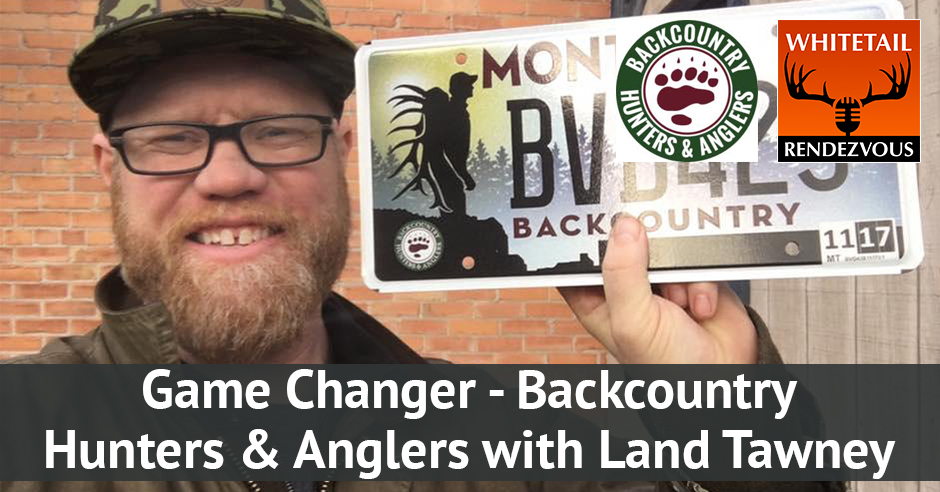
—
Listen to the podcast here:
Game Changer – Backcountry Hunters & Anglers with Land Tawney
We’re heading out to Montana and we’re going to meet Land Tawney, the President and CEO of Backcountry Hunters & Anglers. Land, welcome to the show.
Bruce, thank you so much for having me.
You have been doing a tremendous job waking up people. Let’s jump right into it and talk to my audience about the backstory of BHA.
Backcountry Hunters & Anglers started around the late-night fire in Oregon in 2004. I saw the world’s problem before around campfire and this one stuck. It’s an organization that was formed to look at the playing field of all the different sportsman’s groups that are out there. That’s the out foundation back in the moment and all doing amazing work, but nobody was focused on public lands and public waters. That was the impetus of the organization when it was started in 2004. We want to make sure that you have access to public lands and waters and then the fish and wildlife habitat when you get there. You and I can have access to a parking lot. It was not necessarily someplace where we want to go through a line or chase a critter around. That quality habitat is super important to us as well.
I read on your page when I was doing my work. In 1935, Aldo Leopold said the country has been swinging the hammer development so long and so hard that it has forgotten the anvil of wilderness. That was in 1935 and not much has changed.
We’re an industrious country and we’re not making any more blank spots on the map. It’s making sure that we keep what we have. There are opportunities to grow our public estate. You and I and everybody owned 640 million acres of public land. It’s a place where we all live like kings and this has not happened by accident. That was started by Theodore Roosevelt back in the late 1800s. It’s the Boone and Crockett Club when he became president and is carried throughout history. The conservation has been an IPO in America and that stuff that we enjoyed, none of it happened by accident and none of us is going to be carried forward by accident either.
At the heart of what BHA tries to do is to elevate individual’s voices whether that’s at a local level, at a state level or a national level out in DC. We’re trying to make people aware of issues that are going on and giving them opportunities to engage. It’s in a nutshell of what we do and so far, so good. At the first ten years of the organization, we’ve got about 1,000 members. In the last few years, we’ve grown from 1,000 to now 37,000 members all across the nation. We’ve got chapters now on 45 out of the 50 states, which is exciting. It’s just a couple left that we’re going to grab. Everybody has public land on and that piece is resonating for people all over the country. It doesn’t matter where you are. That public land is important to you.
If somebody wants to look up Backcountry Hunters & Anglers, where would they go on the web?
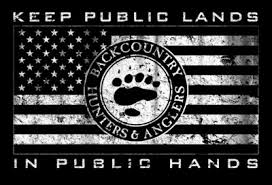 The website is BackcountryHunters.org. It has a whole plethora of information on there. Our social media accounts are robust as well, whether that’s on Facebook or Instagram or Twitter. Look up Backcountry Hunters & Anglers and they’ll find. We have a bunch of state-based Facebook pages. Our national page has about 160,000 people on it and our Instagram account has 130,000 there.
The website is BackcountryHunters.org. It has a whole plethora of information on there. Our social media accounts are robust as well, whether that’s on Facebook or Instagram or Twitter. Look up Backcountry Hunters & Anglers and they’ll find. We have a bunch of state-based Facebook pages. Our national page has about 160,000 people on it and our Instagram account has 130,000 there.
For a long time, you are around 1,000 members and then it exploded. What was the catalyst of that?
It’s partly awareness around public lands. When I took over, I was the first full-time staff. We’re adding staff to that and all the volunteers across the country is a big piece of that. The outside factor is when Bundy took over that National Wildlife Refuge in Oregon and started talking about how they wanted to return that land to the people. The people already own that and they paid for it with duck stamps. That was a watershed moment for us to combat that idea that they were profiting. Congressman Schiff from Utah proposed to sell $3 million acres. When he did that, the public outcry from that was hard and robust. You’re at the tip of the spear that. There have been some opportunities on the outside, but it’s also that positive look that these plans belonged to everybody. It doesn’t matter if you’re a Democrat, Republican or independent. It doesn’t matter how much money you made. It doesn’t matter who your parents are. Everybody is on the same footing on public lands. That idea is very uniquely American. It’s something that when people learn about, the more they want to get involved.
When you think about your growth and you have chapters, do the chapters have meetings? Do they have the Elk Foundation Big Game Banquets? What’s the function of the Colorado chapter?
Backcountry Hunters & Anglers seeks to ensure North America's outdoor heritage of hunting and fishing in a natural setting through education and work on behalf of wild public lands and waters. Share on XThe Colorado chapter is one of our legacy chapters. They’ve been around for a long time. They’ve got about 3,000 members within their ranks. There are different programs that they engage in. It’s focused on the policy. It’s the first key piece. They’re trying to grow membership and raise a little bit of money and do some projects. A couple of things that they’ve done as of late is that they have these people called habitat stewards that look at national forests. Anytime there’s a travel management plan or resource management plan going on there, they engage there. They did a bunch of range cleanups. This ranges on public lands that are necessarily down ranges where people go out and plink old TVs and other things of trashes left until we went out and cleaned up a couple of those.
They’re engaging on land protection efforts there and the wilderness or river corridors. We don’t do the traditional banquet. They’ve pioneered these wild game cook-offs. They’re on their fifth annual that they’re doing. We do cook-offs and we do pint nights and get-together at pubs and brew houses and breweries. We do storytelling events. We’re about ready to have a big storytelling event there in conjunction with the Outdoor Retailer Show coming up. We put a lot more banquets for fun, but we’ve changed that model and we’re trying to be a little bit more interactive and do things a little bit more low-key level. People seem to be attracted to that in a big way.
I reached out to the Colorado chair and said I’d love to have him on the show. I live in Colorado. I’ve been here for a long time. It’s a great place to live. We have our issues but fortunately, I’ve got some friends up in Denver that do have a voice in what happens in parks and wildlife so I’m happy about that. When you think about Backcountry Hunters & Anglers, if we didn’t have the land and water conservation and habitat, the fish wouldn’t swim and the elk wouldn’t be beautiful. Let’s open that up and camp here a little bit so people understand the internship and complex relationship between the land and water and all the critters that it supports.
I got one of my policy degrees when I went to college and I know enough that it would be a little bit dangerous there. That connection between good habitat and then good quality of hunting and fishing opportunities that come with that, those two are interlinked. You talked about Aldo Leopold and I’m going to butcher that quote. One of his famous quotes that he wrote in A Sand County Almanac was, “That thing is right when it tends to preserve the integrity of the ecosystem and it is wrong when it doesn’t.” All parts matter when you think about fish and wildlife habitat. The critters would chase around and the elk, cutthroat trout, which are all fun.
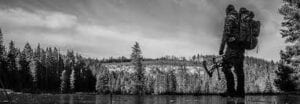 Those ecological communities are much bigger than that. We do pay attention to all parts and make sure that we have highly functioning ecosystems. With that, we’ll have robust fish and wildlife populations. Clean air and clean water are vitally important to us humans as well. Public lands provide 70% of the headwater streams in this country. That’s clean water for everybody in America even if you don’t ever set foot on these public lands and public waters. Think about the ecological services with clean air. Our public lands were developed and they weren’t able to generate that clean air anymore. This will be a much different country. It’s super important whether you chase critters around or just clean air and clean water.
Those ecological communities are much bigger than that. We do pay attention to all parts and make sure that we have highly functioning ecosystems. With that, we’ll have robust fish and wildlife populations. Clean air and clean water are vitally important to us humans as well. Public lands provide 70% of the headwater streams in this country. That’s clean water for everybody in America even if you don’t ever set foot on these public lands and public waters. Think about the ecological services with clean air. Our public lands were developed and they weren’t able to generate that clean air anymore. This will be a much different country. It’s super important whether you chase critters around or just clean air and clean water.
When you think about out west extraction and gold mining and silver mining and you’d go in the Backcountry, the residue is still there. We look at places on Northeast Colorado well county and oil and gas exploration, and then the western slope around rifle and shale there. What’s the position of Backcountry Hunters & Anglers extraction of the fires or oil and gas?
We’re not against extraction in general. Our national forests or public lands are supposed to be managed for multiple uses. That doesn’t mean all uses everywhere all the time. Especially with oil and gas, we want that to be responsibly developed. Instead of doing one area all at once trying to do phase development, cleaning up as you go, trying to stay out of critical migratory routes for pronghorn and mule deer. We’re trying to stay out of the sage grouse lacking areas or other important wildlife habitat areas. With that guidance, oil and gas can continue to happen on our public lands and it should. Hard rock mineral is an interesting piece. I would say all those same things.
The difference between hard rock minerals and oil and gas was that the American people get an excise tax off of money that’s made on oil and gas on our public lands. It’s around 10% to 12%. When it comes to the hard rock minerals, we get zero. That means that all the gold and the copper and the platinum or any hard rock minerals that are coming out of our public lands, you and I and all Americans don’t get any money from that. That’s something that needs to be changed. The hard rock mines, in general, don’t have to have the cleanup situations that oil and gas have either. This law has been around. It’s called the 1872 Mine Law and it’s been governing mining in this country. Think about all the modernization that we’ve had over time and that law still governs how mining is done in this country. That’s one that needs to be reformed.
In general, we’re supportive and there are places that we don’t want to see at all that are staying out of these amazing wildlife areas. I’ll give you two of those. The first one would be the Boundary Waters up in Northern Minnesota. There’s a proposed copper mine that’s just a quarter-mile south of that border. All the water in that watershed flows north so when there would be a spill, that would go right into these pristine waters of the Boundary Waters, which have been protected since the 1960s. It’s the most visited wilderness in the country and it’s something that we shouldn’t mess around with. The other piece would be Bristol Bay up in Alaska. Hopefully, people are aware of what’s going up in Bristol Bay, but there are large gold-copper mines proposed up there with the largest open pit mine in the world to the headwaters of some of the most important streams for salmon.
It’s also in a place where it’s the most seismic activity in Alaska happens up there and have the most earthquakes. It’s just a bad place to have it. Those would be two I’d call out, in particular. Bristol Bay and the Boundary Waters are places that are just too special to develop. We’re not making any more blank spots on the map. The special places that we’ve decided to protect and try to keep the way they are, let’s do that and find other places to do development instead of these world-class opportunities in fish and wildlife habitat.
Both of those places are unique on planet Earth. If you walk up on the tundra, if you dig and get down to the permafrost, you have changed that piece wherever you are stepping or digging. It changes up forever. It’s incredible the environment up there. We raped the land up there for the pursuit of dollars. We kill something that can never be replaced.
When we talk about the ecological integrity and sensitivity, especially those salmon, there are 14,000 jobs that go along with that and that’s very sustainable. It’s something that’s going to happen for a long time. Mining unfortunately is this boom and bust cycle. It’s not that long-term piece that we’re all concerned about. Speaking of that long-term piece, the outdoor economy in this country generates $887 billion a year. It rivals any mineral extraction or oil and gas extraction. It combines all of those and the outdoor economy is still bigger. What I love about the outdoor economy is this isn’t something that happens one year. This is something that can happen every single year. It’s something we can sustain and it’s something that we can grow. The outdoor economy is growing and with new users. We need to think hard about what that means on the ground and how we invest in our future.
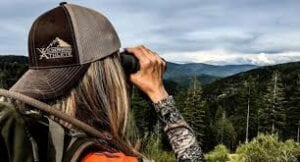 I live in California for a little bit and I thought about the Sierra Club. When you get in Kings Canyon Sequoia and places like that, they’ve been set aside for everybody. What’s your working relationship with other conservation groups or environmental groups?
I live in California for a little bit and I thought about the Sierra Club. When you get in Kings Canyon Sequoia and places like that, they’ve been set aside for everybody. What’s your working relationship with other conservation groups or environmental groups?
It would be issue by issue. We don’t have a standing work relationship with the Sierra Club at all. A lot of these high-efficient organizations in this country, whether that’s the ARCS Foundation, Ducks Unlimited, Pheasants Forever, Tribal Limited and the list goes on, we work with them. It just depends on the issue. It is the Land and Water Conservation Fund, which is the number one access in this country. It’s been used since 1964. It’s been used in 99% of the counties in this country. That’s something that we all worked on together and I was proud of that. It depends on the issue. Bristol Bay has a lot of different people that want to see that stay the same way, the same with the Boundary Waters. Whether that’s at a local level or a national level, it depends on where people are on a certain issue.
It depends on the issue, but the stakeholders who have got the order in the water, pun intended for the bombing words. How do you align yourself?
From our perspective, our people want to make sure that we have access to public lands and waters and then the quality efficient we’ve had when we get there. We can work with people in those spaces all day.
The more people learn about something, the more they want to get involved. Share on XLet’s switch it up a bit on the Land and Water Conservation Fund and talk about enhancing access to public lands. In Colorado, it’s getting harder and harder to access Ohio Creek north of Gunnison because people are buying large plots of land in which you had right away access. It’s shrinking and shrinking. What’s Backcountry Hunters & Anglers doing about access not only in Colorado but throughout the country?
That’s one of the big huge buckets that we throw a bunch of stuff into. We and others together we’re able to create enough momentum that right after they came back from the shutdown, it was one of the first things they undertook. It was a part of a larger public lands package that passed the Senate 92 to 8 and then passed the House 363 to 62. You don’t get those votes anymore out there in DC so I think it showed support for public lands, but in particular, the Land and Water Conservation Fund. Now that has been permanently reauthorized, we need to get a full and dedicated fund in there. A bill was introduced in the house very similar to a bill that looks like that in the Senate. It’s got tons of bipartisan support and it’s something that we hope to get done before the end of the year.
That would be wholly funded. That would be $900 million. That money can be used. Among the channel where I’m from, 70% of our fishing access sites are paid for by the Land and Water Conservation Fund. Others are large corridors, whether that’s by fee title or by an easement that allow us to get access to inaccessible public lands. It’s the number one access in this country so it’s super important. That’s at a federal level. The administration just came out and provided some more access to national wildlife refuges. It’s something we applauded and thanked them for. That’s something that they were following up on a couple of decades of other presidential declarations of expanding hunting and fishing on national wildlife refuges. That’s another piece.
At a local level, we’re trying to work with district managers on resource management plans. We’re trying to find places where there are problems. Not all outdoor users obey the rules, so we’re trying to make sure that not only do we educate them but also provide opportunities. I have places for people to go and then places to recreate in a certain way. I’m here in Montana speaking about inaccessible public lands. There’s a place called the Crazy Mountains and it’s very similar to what you’re talking about. There have been traditional trails. These are trails that are in the deep that have access to the Crazy Mountains and then landowners are shutting those trails down. I appreciate that some people maybe trespass enough with those trails, which we do not condone at all. Maybe there’s some litter being left on which we don’t condone at all. There’s no reason to shut down these trails.
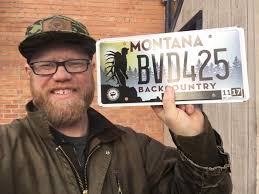 There are discussions about what needs to be done on enforcement, let’s do that. Shutting down these trails shuts us all out from the public. Those are only our third lawsuit we’ve ever engaged in since 2004. We’re doing it right here in Montana and it’s all about access. I can talk about access issues that are happening down in Louisiana, North Carolina and lakes in South Dakota. It’s happening all over this country and we’ll be in chase trying to make sure that people on the ground have a voice.
There are discussions about what needs to be done on enforcement, let’s do that. Shutting down these trails shuts us all out from the public. Those are only our third lawsuit we’ve ever engaged in since 2004. We’re doing it right here in Montana and it’s all about access. I can talk about access issues that are happening down in Louisiana, North Carolina and lakes in South Dakota. It’s happening all over this country and we’ll be in chase trying to make sure that people on the ground have a voice.
The Crazy Mountains are northeast of Bozeman. They’re surrounded by more and more private land. How many acres are locked behind the gates in the Crazy Mountains? How many national forests?
I don’t know that. Here in Montana, there are three million acres of inaccessible public land. The case is you do have access in certain places, but that’s more when we get down to checkerboard areas where a black of that checkerboard is public and then the red of that checkerboard is private. The inability to hop corners makes a lot of things inaccessible.
You could be sitting in Wisconsin, Iowa, Nebraska and say, “How does this affect me?” It does hugely the Land and Water Conservation Fund and the access because more and more people I know are coming out west and enjoying the Rocky Mountains and hunting, fishing or hiking out here. There are many places in the country that haven’t had a voice. Backcountry Hunters & Anglers definitely have a voice. When Land said something or his board says something, people know that they do have a voice. It’s important to each of you to go to BackcountryHunters.org and join. What’s the annual membership cost, Land?
A thing is right when it tends to preserve the integrity of the ecosystem, and it is wrong when it doesn't. Share on XIt’s $25. You’ll get our magazine four times a year. You’ll get hooked up with your local chapter and learn about events where you can get your hands dirty either with a work project or you can get to your state legislature or make a phone call. If you think about that in the context of nowadays world, we’re going to spend that with your significant other and some. For $25, that’s a smoking deal. Iowa has 2% of public land on their state. They became a chapter of BHA. There are a lot of people within that chapter that head out west and enjoy the public lands because it doesn’t matter where you’re from. Those lands belong to you as an American.
They have 2% of public lands they have in Iowa that they want to protect. There was a bill that was going through the legislature there in Iowa that was going to prohibit any new additions on public land. You’re talking about a state that only has 2% and the legislature is trying to pass a law that says no more. We thought that’s a state legislative level ended up winning and hopefully, now with Land and Water Conservation Fund and some purchases we could do there and then we can grow the State of Iowa. It’s an indication of a place that only has 2% public land but has a stake in everything that we do.
Back in 1900, Theodore Roosevelt talked about the Fair Chase and that was the founding principle of Boone and Crockett Club. What is the Backcountry Hunters & Anglers’ stance on the Fair Chase?
Fair Chase is one of the other buckets that we work on. It’s something that is different. Everybody still thinks Aldo Leopold talked about your ethics in the field is something that you do when nobody is looking and where you are at. Everybody has a little bit of a different idea of what Fair Chase is and that’s totally fine. It’s up to the person, especially in situations when they’re out in the woods or on the water. There are some things that are super egregious and I would name a couple. The first is that drones have come on and the opportunity to feel cheaper and better. They got opportunities for abuse. They start to come in on scouting for animals and even using them during the hunt.
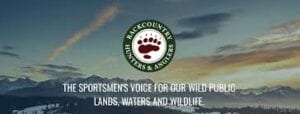 There were some people that are starting to use them at hunt and started talking to us. We led an effort through state gaming commissions and state legislatures to ban the use of drones for hunting and fishing during the season. That happened in 27 states. This doesn’t seem right so we’re engaging in that piece. The other one would be game farms. The privatization of wildlife is a big deal. We talked about the North American wildlife model and that’s one of the main pieces of the North American wildlife model. These animals are one to all of us and they cannot be commercially sold. Putting them behind fences, selling them, privatizing them and not only that piece of the privatization, then you come with a disease. CWD is starting to come in here in Montana. We’ve got a little bit in the southeast corner of the state and then we got a little bit up in the northwest corner of the state.
There were some people that are starting to use them at hunt and started talking to us. We led an effort through state gaming commissions and state legislatures to ban the use of drones for hunting and fishing during the season. That happened in 27 states. This doesn’t seem right so we’re engaging in that piece. The other one would be game farms. The privatization of wildlife is a big deal. We talked about the North American wildlife model and that’s one of the main pieces of the North American wildlife model. These animals are one to all of us and they cannot be commercially sold. Putting them behind fences, selling them, privatizing them and not only that piece of the privatization, then you come with a disease. CWD is starting to come in here in Montana. We’ve got a little bit in the southeast corner of the state and then we got a little bit up in the northwest corner of the state.
It’s not a matter if CWD is going to show up at your doorstep, it’s going to. One of the ways to minimize that is getting rid of these game farms. Game farms have a fence around it. What’s the Fair Chase on that? Those are the two issues that we’ve engaged on at Fair Chase bucket in particular. Eric Nuse used to be the Executive Director for the International Hunter Education Association. He told me one time that he got the definition of Fair Chase. It’s a great one. It doesn’t matter if you follow it with the drone and then shot it or if you shot it with a recurve at ten yards after months and months of patterning that animal. That animal is going to be dead no matter what. It doesn’t care about the Fair Chase. The Fair Chase comes down. It was more about for the hunter. Is it fair to the hunt? We put that lens on a lot of different issues. Are things fair to the hunt? If it doesn’t pass that note, that’s something that our chapters or we will engage at a national level.
My friends at ATA have a good panel of discussion. She noted people and the biggest thing about game farms is transportation. I’m in Texas and I’ve got a game farm. He lands up in Montana and he wants one of my stud deer or he wants a high-producing doe, so we make a deal. We ship them up there. Unbeknownst to both of us, that doe had CWD. We’ve moved it from one area to the next and that doesn’t work. If you want a high fence on, I have no problem with it. The problem I have now because of CWD is the transportation across state lines and transportation from different areas of the different state. That’s putting us all at risk. As hunters, our hunting tradition is at risk because of CWD, in my opinion.
It’s one of the biggest risks that are out there.
It’s in the elk, it’s in the moose and it’s in deer surrogates. Caribou is the main one that’s affected by CWD. You have a choice and you can let people know your state fish and game representatives and people in your state government. That’s where it has to start. It’s not going to be such a situation unless a human being got CWD, then all bets are off.
There’s never been a confirmed case of CWD being transferred to humans. There are plenty of people that killed deer with CWD and eat it and there hasn’t been a problem. It’s something that we need to be cautious about. There is legislation that’s moving out in DC and it’s to provide some funding for studies and start to look at what are the best ways to deal with CWD. The Congress is taking action out in DC or at least they’re moving stuff forward. They haven’t taken total action yet. At the state level, we’ve got a big chapter in Ohio. They’ve been in Wisconsin and they’ve been key addressing this at a state level. It’s a two-pronged approach. I do agree that the majority of it has not touched on at the state level.
It’s our future as people in the outdoors and it’s our future specifically as whitetail hunters and elk hunters to protect that resource. We have to do everything possible to do that. In some cases, it’s not an easy answer. In other cases, it’s straight forward if people will take action. When you look at the future of Backcountry Hunters & Anglers, what do you see?
There are a couple of things that we were close to having full coverage of all the states as far as chapters, which is to help us be more engaged at a state level and also at a national level. Another place of growth for us was in Canada. We have chapters in British Columbia and Alberta and the Yukon territory. We’re spending our footprint up there. Full coverage is a big piece. One of the things we haven’t talked about is our demographics. BHA was about to do our yearly survey. The last year has come out and it said that 70% of our members are 45 and younger. I love that number. What I love about that number is we have a lot of sage wisdom in our organization and people that have been involved in a fight in the trenches for a long time. We can combine that with our youthful exuberance.
 When I think about the future conservation in this country, none of what we have now happened by accident and none of us can be carried forward by accident either. There’s a fairly large leadership vacuum coming in for a lot of people that are dying out from your conservation leadership. Those 45 and younger give me hope. It’s a place for us to expand on and double down on and we’re doing that. We have 38 clubs all across the country and we’re expanding that program. We’re hunting off our sustainability workshops or learn to hunt workshops for new adult hunters. Instead of somebody who’s grown up with high-end fishing, there are people that are coming to high-end fishing in their 20s and 30s wanting to feed their families with the most organic meat that they can. What’s a better way to do that than hunting and fishing?
When I think about the future conservation in this country, none of what we have now happened by accident and none of us can be carried forward by accident either. There’s a fairly large leadership vacuum coming in for a lot of people that are dying out from your conservation leadership. Those 45 and younger give me hope. It’s a place for us to expand on and double down on and we’re doing that. We have 38 clubs all across the country and we’re expanding that program. We’re hunting off our sustainability workshops or learn to hunt workshops for new adult hunters. Instead of somebody who’s grown up with high-end fishing, there are people that are coming to high-end fishing in their 20s and 30s wanting to feed their families with the most organic meat that they can. What’s a better way to do that than hunting and fishing?
We’re trying to double down on those efforts and on other places we’re expanding in a military outreach and we got a program that will be very similar to our college club program there. We’re bringing these things together. To me, the kids are the future. It sounds cliché but we as a community and a sportsman’s community haven’t done a good job in engaging with them to help them grow into the future. I’m giving them opportunities for leadership to get their hands dirty. That’s something that I see in our future. I’d love for us to come much more influential at a national level and continue to influence at the state level as well.
As we know in the hunting community, we’re losing hunters because 10,000 people a day reach age 65. I’m in the age factor that I’m just transferring my knowledge through the show. A friend of mine cheers the three Rs in the State of Minnesota. It’s about recruiting new hunters. Recruit, reactivate and retention are the three Rs. A lot of states realize that it’s a huge industry, but nobody buys a fishing license. Nobody buys a part-task. Nobody buys a hunting license. Their maintenance of wildlife and a lot of other different factors goes away. We’re talking millions of dollars across the country, so it is important. The more I hear, the more discussions I’ve had about Backcountry Hunters & Anglers. You have a tremendous opportunity because a lot of people say, “I want to protect the waters. I want to do this.” They may never catch a fish and they may never kill an elk, deer, squirrel or grout but they’re still engaged. That’s the message that I want you to know. Get engaged. For $25, get engaged. Put your oar in the water and don’t just rant endlessly on social media, “The state isn’t doing this. The government isn’t doing this.” It’s your responsibility to get engaged because if you don’t and if you’re 25 years old, your grandchildren will not enjoy what I enjoyed my whole life.
A lot of people don’t think their voice counts anymore. I’ll bring us back to that public land that happened around the Land and Water Conservation Fund. 92 to 8 in the Senate and 363 to 62 in the house, that does not happen by accident. People banged on the door, they made phone calls, they sent emails, they elected officials back home when they’re on recess and just told them that they demanded that they wanted them to pass this bill and they responded. Politicians listen to a lot of different people. With our voice, we still have an opportunity only if you use it.
The inability to hop corners makes a lot of things inaccessible. Share on XAnything organic is hot now. Just go on social media. Elk, moose, whitetail, pronghorn, rabbits and squirrels are organic and we have people called adult-onset hunters. They are entering in the hunting community for one reason. They want to know where their food comes from. Can you talk to that a little bit?
The numbers are going down forever. On the last one, it went up a little bit or at least maintained and they looked at the factors driving that. The two factors were there are much more new women hunters and there are much more of these new adult hunters. These numbers go up and the connection is the food. Think about if some of that goes to the local farmer’s market and then they start growing their own vegetables. The next logical step is to look at harvesting their own meat. You’ve got to go out and kill a deer, kill an elk and that can be very daunting. It’s one thing to kill that animal, but then what are you doing on the ground? That’s where we come back with hunting for sustainability programs. I’m trying to do some stuff online through video and educate people and make it less of a barrier.
There’s the terminal venison diplomacy as well. If you have somebody that’s never tried wild meat or maybe they have and somebody overcooked it and it wasn’t very good, they’re like, “I don’t wild meat.” Somebody hasn’t cooked that for you right. I grew up eating steaks and burgers and that’s all we ate. Now I’m trying things like Ossobuco. We’re cooking shanks off of my deer. You have all these different things that you can do with the meat. It’s the big rack on the wall like, “How did you cook that thing?” That’s becoming a more and more accurate modern hunting. I think that’s a great thing. It’s a great way to reach out to new audiences and explain to them one of the big pieces on why we hunt.
Your local chapters get together and have meetups at establishments. Did you say something about having cook-offs?
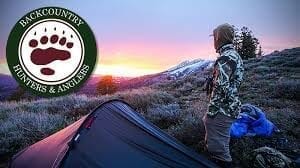 There’s a wild game that we do in Colorado and that’s done in many other states. We have our North American Rendezvous. We had ten teams from ten different states compete. The dishes were amazing and we’re starting to break out more of these field events to show people that these things are very accessible and you don’t have to get all crazy, but you can make delicious food with them.
There’s a wild game that we do in Colorado and that’s done in many other states. We have our North American Rendezvous. We had ten teams from ten different states compete. The dishes were amazing and we’re starting to break out more of these field events to show people that these things are very accessible and you don’t have to get all crazy, but you can make delicious food with them.
There are many fields to plate people out there, just google them. I have one friend up in Fort Collins, she’s an attorney, she’s is Stephanie and she was a vegan. All of a sudden, she wanted her own food. She wanted to control where her food was coming from so she started hunting. Now she’s turning into an incredible hunter and she enjoys all the aspects of the hunt and the adventure of the hunt. That’s the other thing. It isn’t, in my opinion, so much to kill. It’s the journey and the adventure of going places that few people ever walk and being mesmerized by what you’re looking at. What are your thoughts on that?
In this crazy world that we’re living in, you’re attached to your cell phone all the time. You’re never away from a screen or never away from a phone call. These places that you can go find challenge and solitude and adventure, which is public lands and public waters. The solace that you get from that is immeasurable how important that is in our society. It’s always been important. It’s a great exercise and getting out fresh air. With the ability to turn it off especially in this day and age of being connected, I can’t underscore how important that is and I know how important it is to me. That’s important to a lot of other people as well. It keeps people sane a little bit in this crazy world that we live in.
Let’s recap what we talked about. Let’s go through your issues that Backcountry Hunters & Anglers that you’re focused on.
It’s large landscape protection. We’ve mentioned the Boundary Waters up in Northern Minnesota or Bristol Bay up in Alaska. We’re focused on making sure you have access to our public lands and public waters within that Land and Water Conservation Fund as well as local access fights all over this country. One thing we didn’t touch on is trying to find funding for fish and wildlife. We talked about it a little bit as license dollars diminished because there are fewer hunters as excise taxes diminish from Pittman-Robertson. We need to think about other creative ways to find money. I mentioned one around 1872 land law that there’s an opportunity to gain some money there. The final one would be that three Rs, the recruitment, retention and reactivation.
We’re mostly on the recruitment side of things and within that recruitment side, it’s twenty and older. I’s college-age up to about 40. It’s where we’re concentrated and we’re having quite a success there. Your voice doesn’t count unless you use it. Whether that’s with us, you can come and be a member for $25. If that’s with some other organization or you’re just doing that on your own, this country is built on those that show up. If you don’t show up, you’re not at the table, you’re on the menu. That rings true in this country. Get yourself at the table. Pound your fist a little bit and good things will happen.
Where does somebody have to go to become a member?
It’s BackcountryHunters.org. We’ve got many different membership levels there, but that starts at $25. Check out that and that’s probably the easiest way.
Thank you so much, Land Tawney, for sharing a little bit about Backcountry Hunters & Anglers. Thank you for dedicating yourself. I know sometimes you’re there and the phone rings and people want a piece of you for whatever you said. It takes a certain type of man, certain type of heart and a certain type of compass to do the things you’re doing. A job well done, keep it up. Thank you so much for having a seat at the table and saying, “No, this isn’t the way it’s going to go. I can make a difference.”
Thank you, Bruce. Thank you for using your bully pulpit to help us spread the message a little bit. I would say that we’re all in this arena together while I maybe take a lot of the arrows because I’m at the top. This legacy that we have did not happen by accident. There are plenty of people we know like Aldo Leopold, Roosevelts and there plenty of people that we don’t know that were engaged in a whole fight. No matter what role you’re going to play, do something and step up.
Important Links:
- Backcountry Hunters & Anglers
- Boone and Crockett Club
- Facebook – Backcountry Hunters & Anglers
- Instagram – Backcountry Hunters & Anglers
- Twitter – Backcountry Hunters & Anglers
- A Sand County Almanac
- International Hunter Education Association
- https://www.BackcountryHunters.org/tags/video
- https://www.BackcountryHunters.org/
About Land Tawney
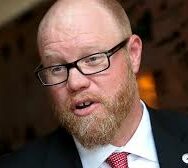 Land Tawney – President and CEO Missoula MT
Land Tawney – President and CEO Missoula MT
Our Issues
Access & Opportunity
Access has emerged as a priority issue for American hunters and anglers, and lack of access is cited by sportsmen and women as the No. 1 reason why we stop pursuing our passions. Our outdoor heritage is guided by the public lands legacy established by President Theodore Roosevelt and his fellow visionaries. These foresighted individuals understood the importance of taking action both for the sake of the resource and for the benefit of the generations that follow ours. That spirit of stewardship, along with the North American Model of Wildlife Conservation and the Public Trust Doctrine, make the United States unique.
They set our country apart by declaring that fish and wildlife belong to each and every citizen – and we all have equal opportunities to access and enjoy them. The concepts of access and opportunity extend well beyond physical barriers. Well-monied interests are invested in dismantling the North American Model in favor of practices that benefit only those who can pay for these privileges. BHA is committed to amplifying the voices of our state chapters to influence policies that not only address the physical issue of access but also prioritize conservation of key lands and waters, protection of valuable habitat, implementation of responsible land management policies, and resistance against the privatization of public lands, waters and wildlife.
